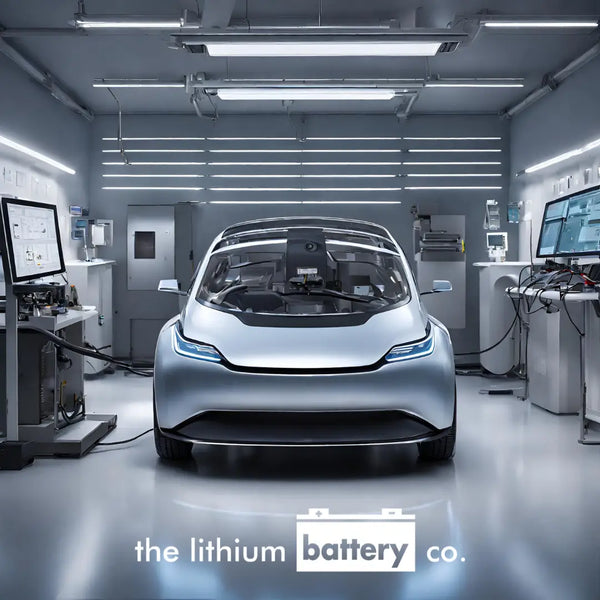
Introduction
Electric vehicles (EVs) are not just a mode of transportation; they represent a monumental shift towards sustainable mobility and environmental consciousness. At the heart of every EV lies its battery, the technological marvel that determines its range, performance, and overall appeal. This blog post will explore the indispensable world of EV batteries, catering to a diverse audience, from electric vehicle manufacturers to defense contractors and energy storage providers. Join us as we explore the pivotal role of EV batteries in shaping the future of transportation, the latest technological advancements, their environmental impact, and the promising future that lies ahead.
Overview of the Importance of Quality Batteries in Electric Vehicles
Quality is the linchpin of successful EV battery integration. Manufacturers, processional from OEMs and two wheeler manufacturers to specialty EV makers, understand the importance of high-quality batteries. They serve not only as the power source but also as the heart of the vehicle's operational efficiency and longevity. Leading the charge in this industry is Lithium Battery Company, offering custom lithium-ion battery solutions for a wide range of applications including advanced energy storage systems and portable power units.

The Role of EV Batteries in Driving the Future of Transport
The transition to electric modes of transport hinges upon the capabilities of EV batteries. These energy storage powerhouses allow for increased range, quicker charge times, and a greener footprint. With partners such as General Dynamics Land Systems and SpaceX, Lithium Battery Company, headquartered in Tampa, FL, is at the forefront of engineering battery solutions that can power anything from urban two-wheelers to cutting-edge spacecraft. Their comprehensive product line includes high voltage options and varied configurations, ensuring that every sector can find a reliable energy solution.
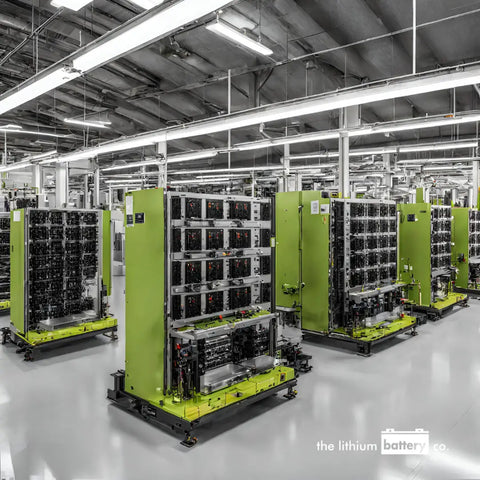
Technological Advancements in EV Battery Performance and Longevity
Technological innovation has been central to improving EV battery performance and longevity. Today's batteries, like those found in Lithium Battery Company's inventory, boast features such as extended life cycles and robust energy yield, paving the way for more sustainable and cost-effective electric transportation. Their custom battery packs, catered to unique client needs, offer unparalleled performance for specialized applications such as defense vehicles and public transportation systems.
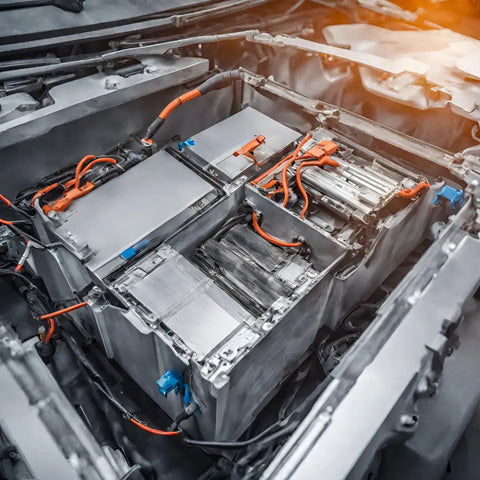
Environmental Impact of EV Batteries: Sustainability and Recycling
The shift to EVs is about more than just innovative technology; it's about our planet's health. EV batteries, particularly those utilizing lithium-ion technology, present fewer environmental risks than traditional fuel sources. Plus, companies like Lithium Battery Company are committed to sustainability, providing detailed insights on how to effectively recycle batteries and reduce electronic waste.
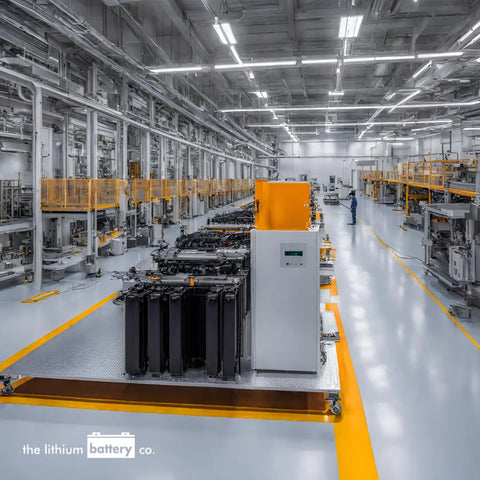
Challenges and Opportunities in EV Battery Manufacturing
While the opportunities in EV battery manufacturing are abundant, there are challenges too. One significant obstacle is balancing the demand for higher performance with cost constraints. Production scalability, raw material sourcing, and geopolitical factors also play a role. Yet, through strategic partnerships and continual research and development, companies are overcoming these hurdles, evidenced by case studies in sectors like public transportation and specialty EVs.
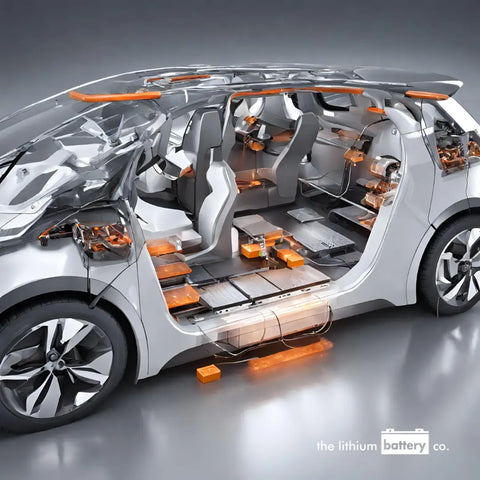
Future Projections for EV Battery Technology and Market Growth
The future of EV batteries is exciting and promising. With advancements in energy density and reductions in charging time, electric vehicles are becoming increasingly competitive with traditional vehicles. Market growth for EV batteries is projected to be substantial, as more countries and companies invest in electrified transport solutions.
At Lithium Battery Company, the understanding of these market dynamics is inherent to their mission. They not only provide batteries in various voltages, including 12V, 24V, 36V, 48V, 72V, 96V, and custom packs but also support the burgeoning market with resources such as informative articles and expert guidance.
How Lithium Battery Company Can Help You
Whether you are an electric vehicle OEM or a commercial EV producer, Lithium Battery Company can assist in developing a lithium EV battery tailored to your product. Their client-centric approach means each query, be it about battery selection or a complex custom solution, is handled with top-notch expertise. With a product lineup ranging from LiFePO4 batteries to NMC and LiPo batteries, they cater to a spectrum of EV battery needs.
Frequently Asked Questions Addressed.
Are all cars equipped with lithium-ion batteries?
While not every vehicle utilizes lithium-ion technology, it is the leading battery type in newer electric vehicles due to its energy efficiency and performance.
What differentiates Lithium Battery Company's batteries from others on the market?
The key differentiator is the customizability and technological innovation of our products. Lithium Battery Company focuses on providing batteries that are specifically engineered to meet the unique demands of our clients. This bespoke approach, combined with our commitment to quality and sustainability, sets our batteries apart.
Can Lithium Battery Company batteries be used in non-EV applications?
Absolutely. While our batteries are optimized for electric vehicles, their versatility and robustness make them well-suited for a wide range of other applications, including solar energy storage, marine uses, and portable power solutions. We work closely with clients to identify the best battery configuration for their specific needs, regardless of the industry.
How long do EV batteries last?
The lifespan of EV batteries is an aspect of paramount importance to users and manufacturers alike. On average, a lithium-ion battery for an electric vehicle is designed to last between 10 to 20 years before a significant decrease in performance is observed. However, this varies based on several factors including the type of battery, the conditions under which it is used, and how well it is maintained. Lithium Battery Company focuses on extending this lifespan through innovative technology and robust manufacturing processes, ensuring a longer life cycle for the batteries used in electric vehicles.
Are EV Batteries recyclable?
Yes, EV batteries are highly recyclable. The components that make up EV batteries, including lithium, cobalt, nickel, and copper, can be reclaimed and reused in the production of new batteries. This not only conserves natural resources but also minimizes the ecological footprint of electric vehicles. Lithium Battery Company is at the forefront of sustainable practices, providing detailed recycling procedures to ensure that their batteries contribute to an eco-friendly cycle of use and reuse. This commitment to recycling and sustainability is a testament to the company's dedication to environmental stewardship.
How are lithium batteries used in electric vehicles?
Lithium batteries serve as the powerhouse behind electric vehicles (EVs) by providing the high energy density required for long-distance travel on a single charge. Their efficiency and performance stem from lithium-ion technology, which allows for a compact, lightweight design while offering substantial power output. This makes lithium batteries ideal for electric vehicles, as they can store a large amount of energy in a relatively small space, contributing to the vehicles' overall efficiency and range. Manufacturers like the Lithium Battery Company optimize these batteries for the rigorous demands of EVs, ensuring durability, reliability, and extended life spans, thus addressing one of the critical components in the transition towards electrified transport solutions.
Can electric cars really happen without lithium?
The feasibility of electric cars without lithium hinges on the development and adoption of alternative battery technologies. While lithium-ion batteries currently dominate the EV market due to their high energy density and lightweight properties, research into other materials, such as sodium-ion, solid-state, and zinc-air batteries, presents potential pathways away from lithium dependency. These alternatives aim to offer comparable performance while addressing some of the limitations of lithium, including resource scarcity and environmental concerns associated with mining. However, substantial challenges in technology scalability, cost, and performance must be overcome before these alternatives can fully support the widespread adoption of electric vehicles. Therefore, while electric cars without lithium are theoretically possible, significant advancements in battery technology and infrastructure will be essential to realize this transition.
Are all cars equipped with lithium-ion batteries?
Not all cars are equipped with lithium-ion batteries. Traditional internal combustion engine (ICE) vehicles primarily rely on lead-acid batteries for starting, lighting, and ignition (SLI) purposes rather than propulsion. In contrast, electric vehicles (EVs) and many hybrid vehicles utilize lithium-ion batteries due to their higher energy density, lighter weight, and greater efficiency for electric propulsion. However, some older or entry-level hybrid models may use nickel-metal hydride (NiMH) batteries, which offer a different balance of cost, performance, and environmental impact. As technology evolves, the use of lithium-ion batteries is becoming more widespread across various types of vehicles, reflecting their advantages for electric propulsion and energy storage solutions.
How fast is the price of lithium-ion cells falling?
The price of lithium-ion cells has been on a downward trajectory for the past decade, thanks to advancements in technology, economies of scale, and increased production capabilities. According to recent studies, the cost per kilowatt-hour (kWh) of lithium-ion batteries has dropped by approximately 89% since 2010. This significant decrease is propelling the adoption of electric vehicles by making them more financially accessible to a broader audience. Analysts anticipate this trend will continue as new manufacturing techniques are adopted, supply chain efficiencies are realized, and innovations in lithium-ion chemistry further enhance performance and reduce costs. This cost reduction is crucial for the future of sustainable energy and electric vehicles, as it makes clean technologies more competitive with traditional fossil-fuel-based options.
What happens to lithium batteries when they are dead?
When lithium batteries are deemed dead, they don't simply become waste; instead, they enter a specialized recycling process. This process begins with the safe collection and transportation of expired batteries to a recycling facility. Here, they undergo disassembly and shredding to separate the various materials. Critical components like lithium, cobalt, nickel, and copper are extracted and purified for reuse. Recycling lithium batteries not only mitigates the environmental impact associated with battery disposal but also helps in conserving valuable resources by reintroducing them into the supply chain. The advancement in recycling technologies ensures that this process is becoming more efficient and less costly, further supporting the sustainability goals of the electric vehicle industry.
Why is the battery aspect of an electric vehicle so expensive?
The battery aspect of an electric vehicle (EV) commands a high cost because it is the most critical component in terms of performance, range, and overall vehicle lifespan. The production of lithium-ion batteries, the standard for current EVs, requires significant resources, including rare and expensive materials such as lithium, cobalt, and nickel. Additionally, the process of assembling these batteries is complex, involving advanced technology and strict safety standards to ensure they are reliable and durable. The research and development costs associated with improving battery technology, including efforts to increase energy density, reduce charging times, and extend life expectancy, add further to the expense. However, as battery technology advances and production scales up, prices are expected to decrease over time, making EVs more accessible to a broader market.
How Lithium Battery Company can help design and develop a lithium EV battery for your product.
Lithium Battery Company specializes in developing cutting-edge lithium battery solutions tailored specifically for electric vehicles. With a deep understanding of the unique requirements and challenges within the EV market, the company is equipped to assist in the design and development of lithium EV batteries that offer optimal performance, longevity, and safety. By leveraging advanced battery technology and innovative engineering practices, Lithium Battery Company collaborates with clients to create customized battery systems that meet the specific needs of their products. This comprises thorough testing and validation processes to ensure reliability under various conditions. Additionally, Lithium Battery Company provides ongoing support and expertise to optimize battery performance throughout the product lifecycle, aiding clients in achieving competitive advantages in the rapidly evolving electric vehicle sector.
Conclusion
Elevating the notion of clean, efficient, and advanced transportation, EV batteries stand at the junction of innovation and sustainability. Lithium Battery Company—with its robust product offerings, commitment to quality, and vision as a leading energy supplier—continues to power the evolution of the EV landscape. The road ahead for EVs is charged with potential, and it's the batteries that pave the way to this electrified future.
For more information or to become part of the clean energy revolution, visit Lithium Battery Company and explore their comprehensive collection of EV batteries and accessories.
Highlighted SEO Keywords
- ev battery
- ev batteries
- ev battery recycling
- Sustainable Mobility
- EV Battery Technology
- Electric Vehicle Innovation
- Lithium-ion Batteries
Explore More
-
Shop High-Quality Lithium Batteries
-
Custom Battery Packs
-
Battery Accessories and Chargers
-
Victron Energy Products
- Contact Us for bespoke inquiries and solutions.
-
Victron Energy Products
-
Battery Accessories and Chargers
-
Custom Battery Packs

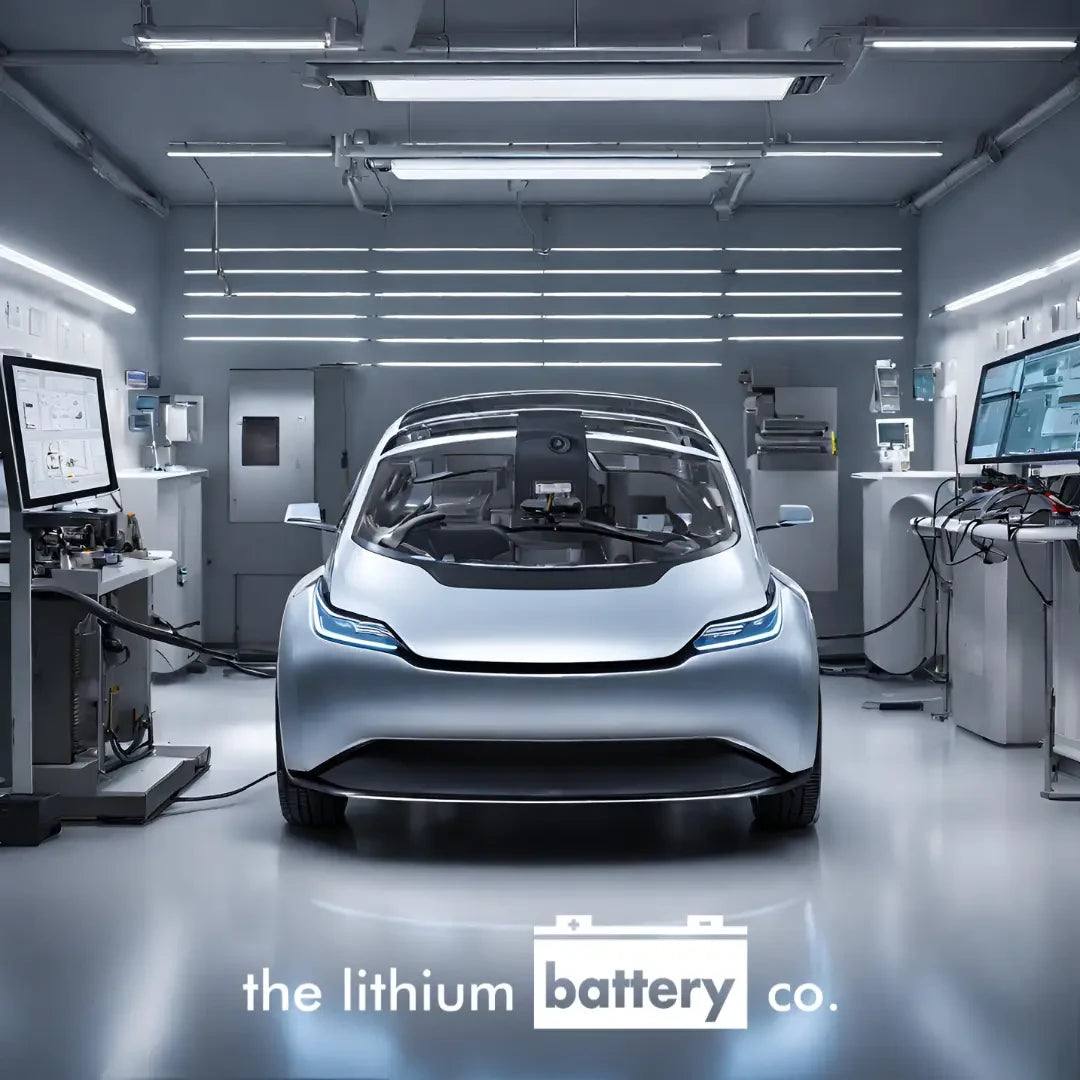
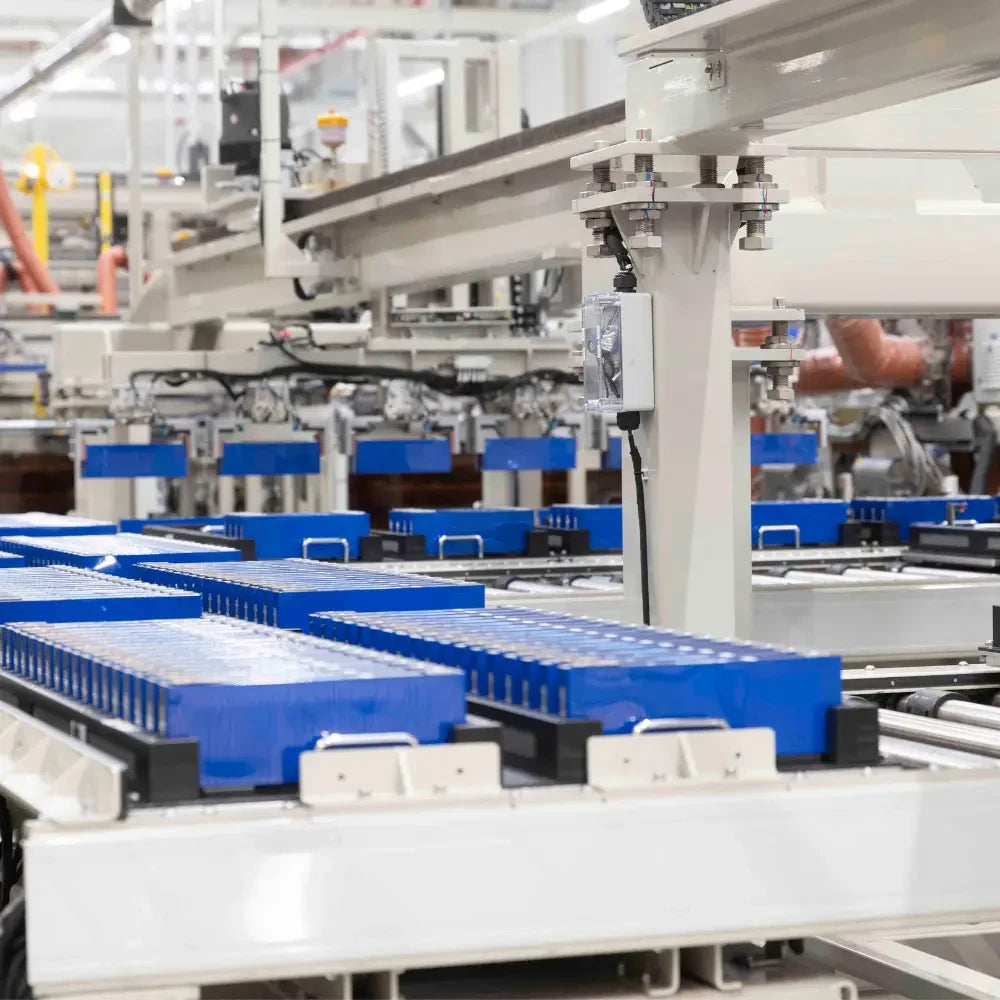
Leave a comment
All comments are moderated before being published.
This site is protected by reCAPTCHA and the Google Privacy Policy and Terms of Service apply.